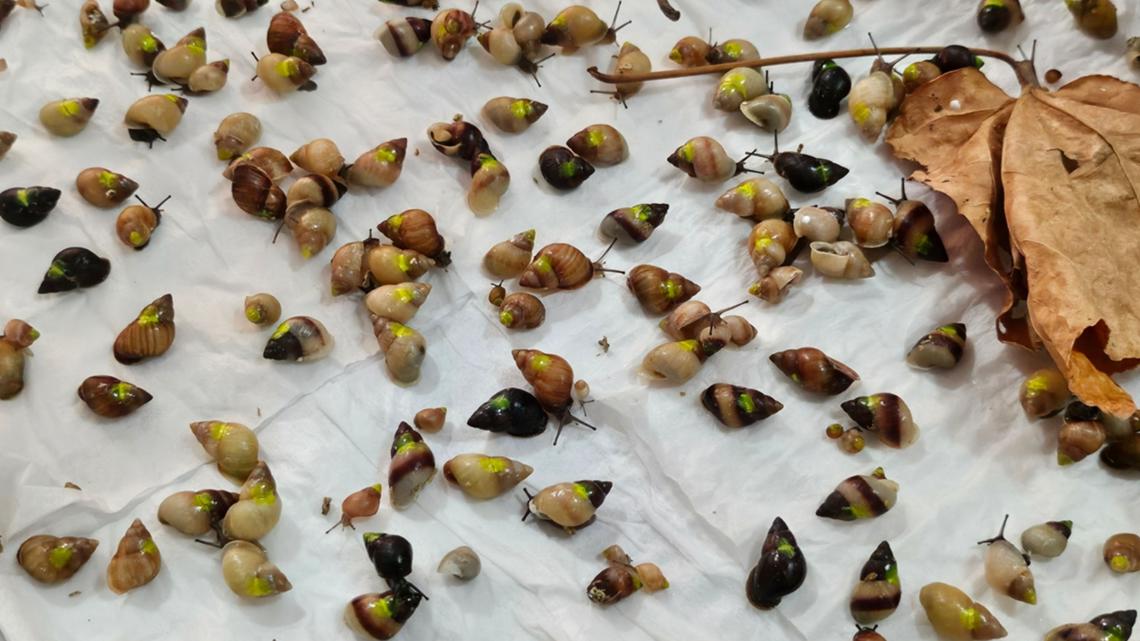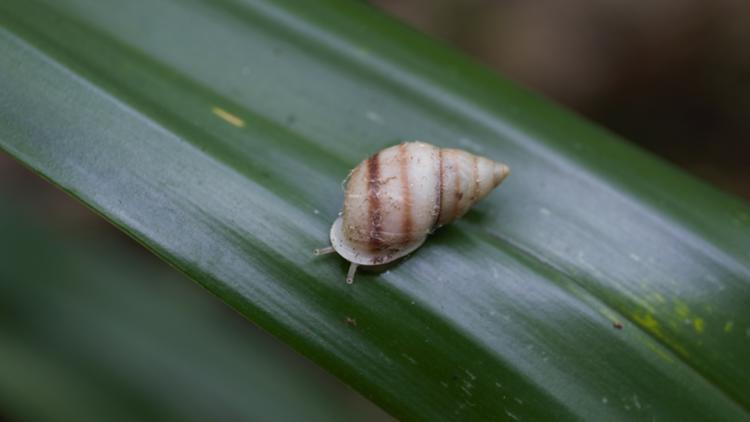ST. LOUIS — An extremely tiny snail just had a globally historic moment.
The small Partula snails play a big role in the French Polynesian islands' environment. The tree snails maintain forest health by eating decaying plant tissue and fungi, but were decimated after humans introduced the predatory rosy wolf snails in the 1970s.
They have since been considered extinct in the wild, until recently. Saint Louis Zoo representatives announced Thursday an unmarked Partula snail was discovered, proof that the species has successfully reestablished itself in the wild and is one of the first-ever invertebrate species to do so.
"This discovery is a testament to the importance of zoos in conservation around the world," said Kayla Garcia, Saint Louis Zoo Zoological Manager of Invertebrates. "We have dedicated thousands of staff and volunteer hours over decades to saving these highly endangered snails. We are proud that all our work and the tireless efforts of our collaborators have made this reintroduction into the wild possible."


The Saint Louis Zoo joined the global conservation effort for the snails in 1990 and has since served as a U.S. hub for an annual reintroduction effort of the snails led by the Zoological Society of London. Around 6,000 snails from 10 Partula snail species were released in this year's reintroduction effort, 1,000 of which were raised at the Saint Louis Zoo.
The snail will now be transitioned from the International Union for Conservation of Nature's "Extinct-in-the-Wild" list to the "Critically Endangered" list.
"Over decades, the Zoo has provided funding for staff, equipment for field surveys, the construction and monitoring of predator exclusion reserves, and reintroduction efforts, in addition to regularly sending snails raised at the Saint Louis Zoo for release into the wild beginning in 2015," the Zoo said in a statement.



